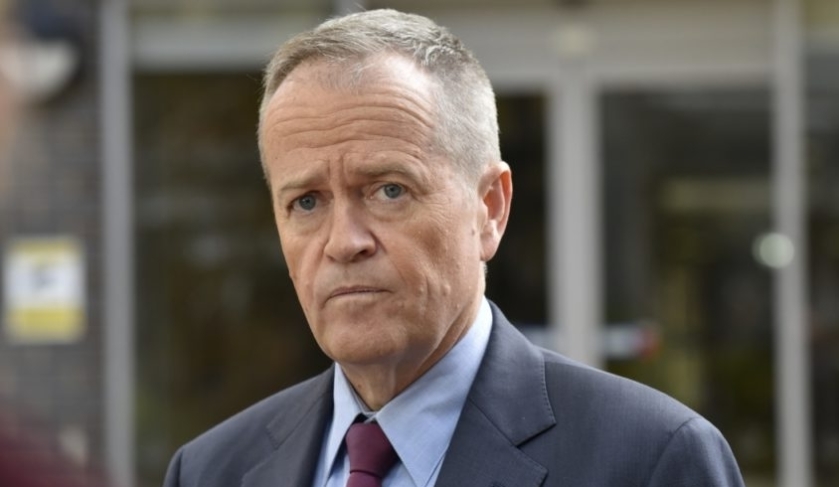How property investors can prepare for changes to negative gearing

If the Australian Labor Party wins the election in May, negative gearing and other features of the tax system across the country will undergo major changes.
For one, negative gearing, or the ability to offset investment losses against taxable income, will be limited to newly constructed housing starting 1 January 2020. Moreover, capital gains tax discount for assets held longer than 12 months will be reduced from 50 per cent to 25 per cent.
Apart from these changes, there could be up to 13 major policy changes to be implemented if Labor wins, according to the Institute of Public Accountants’ Tony Greco.
Any shift in major policies could have a significant impact on growth across property markets, and considering the current fluctuations in capital city markets such as Sydney and Melbourne, property investors could be in for a turbulent ride in the near future should a change in government happen.
“It’s not well understood that these changes do not just relate to property. It relates to all investments… There’s a lot at stake,” Mr Greco highlighted.
Still, investors are advised to avoid any sort of panic. After all, no matter the noise in the media, nothing has actually been set in stone just yet.
Rethink Investing’s Scott O’Neill said: “Do you need to quickly hurry up and change your tactic around investing in property? No, because you never go make a decision off the bat.”
“Right now, we don’t know who’s actually going to be in power. There’s strong opinions, of course, but you don't get to make a big investment decision off these speculations. You just need to wait it out and see what happens.”
At best, investors can prioritise education and reassess their strategies so they could thrive for the long-term, regardless of the major changes that may happen in the property market.
Strategy
Mr Greco and Mr O’Neill share three simple steps to prepare for any major change in the property market post-election:
1. Reassess portfolio and financial position
First and foremost, investors are advised to review their current position in the market, putting particular focus on the numbers that make up their properties.
In a changing market, it’s important to ensure that cash flow is consistent and overall finances are in order, according to Mr Greco.
“Look at all your properties—is there an excess amount of deduction that could be offset? If you have a property that’s positively geared and one that’s negatively geared, you pull them together and see what the overall impact could be. That’s how we envisage the policy to operate.”
“It will be different for every property investor, especially if they have a mix of positive and negative investments.”
Investors are also encouraged to consider the possibility of shifting strategies in order to continue thriving amid significant changes in the property market.
“From a cash flow perspective, nothing changes, but if you had to realise that property in the short term, you have to factor in some adjustment in the market price. I think for anyone who’s contemplating a transaction in the foreseeable future, I think that’s got to be on the radar,” Mr Greco said.
2. Engage property professionals
With a lot of uncertainty in the market, investors can benefit from the guidance of property professionals, particularly those with a good understanding of property tax.
Whether or not Labor’s new policies take hold, investors must be prepared to make adjustments to their strategies due to the current fluctuations in the market – from declining property values to the tightening of the credit environment.
According to Mr Greco: “There is a lot of uncertainty in relation to what might happen but people should always reassess their own portfolio and their future desires to understand the possible implications of market movements.”
Where appropriate, investors are advised to engage with property professionals, particularly accountants, in order to get a better understanding of the direct impacts of the market fluctuations and the possible policy changes on their portfolio.
“Understanding how these possible changes can impact the broader market is a good starting point. Accountants will be well-versed enough to explain these to you, while taking into account your future ideas about how to operate your portfolio.”
“Have a conversation with your trusted advisor as early as now.”
3. Implement long-term strategies
Finally, investors are strongly encouraged to stay calm and focus on their long-term goals.
After all, while negative gearing plays a huge part in the strategies of some investors, particularly those who seek to maximise tax benefits, at the end of the day, it is merely a tax outcome – not an investment strategy.
Mr O’Neill reminded investors that property investment must always be guided by property growth fundamentals, including supply and demand, infrastructure, population growth, jobs growth and overall local and national economy.
“I don’t think you should invest for negative gearing. It’s not a wise strategy to buy a property just so you can get some tax back,” according to him.
Despite the fluctuations in the market and the uncertainty brought by the upcoming elections, there remains great wealth-creation opportunities across Australia for investors who implement long-term strategies based on their personal goals, capabilities and limitations.
His advice to investors: Don’t sit on the sidelines because you fear change. Instead, take advantage of whatever opportunities are left in the market.
Mr O’Neill said: “If you look back at all the crashes in history, there’s been almost triple or quadruple the growth before the correction. So buy for the long-term, make sure you’ve got the cash flow to support yourself and just pick good markets.”
“Now, those who think it is and want to sit on the sidelines, you’re only going to harm yourself. If you don’t invest because you don’t get the election outcome you want, well, how’s that going to help you in retirement?”
“If you wait until everyone else is there, you’ve already lost out,” he concluded.
